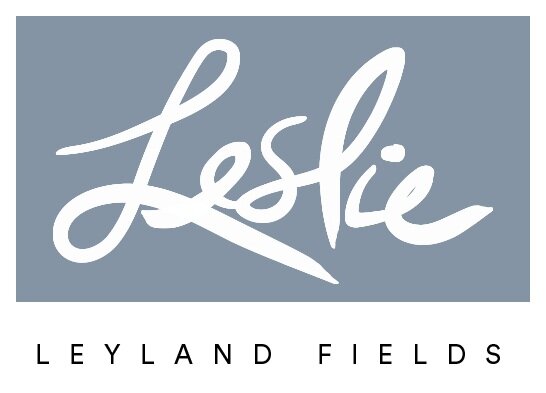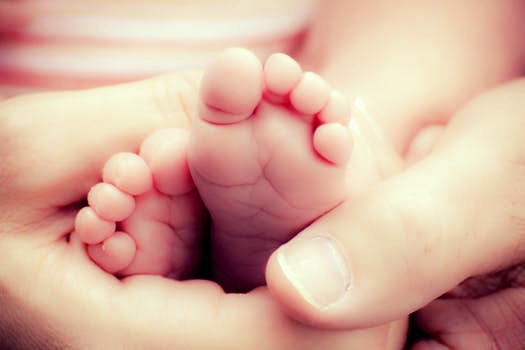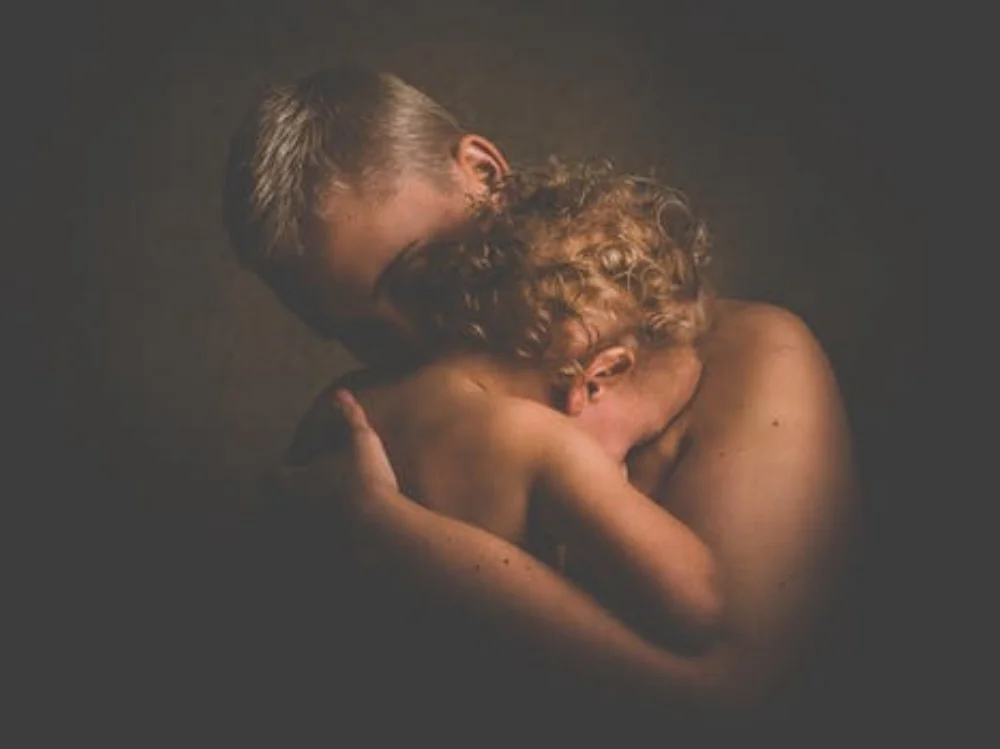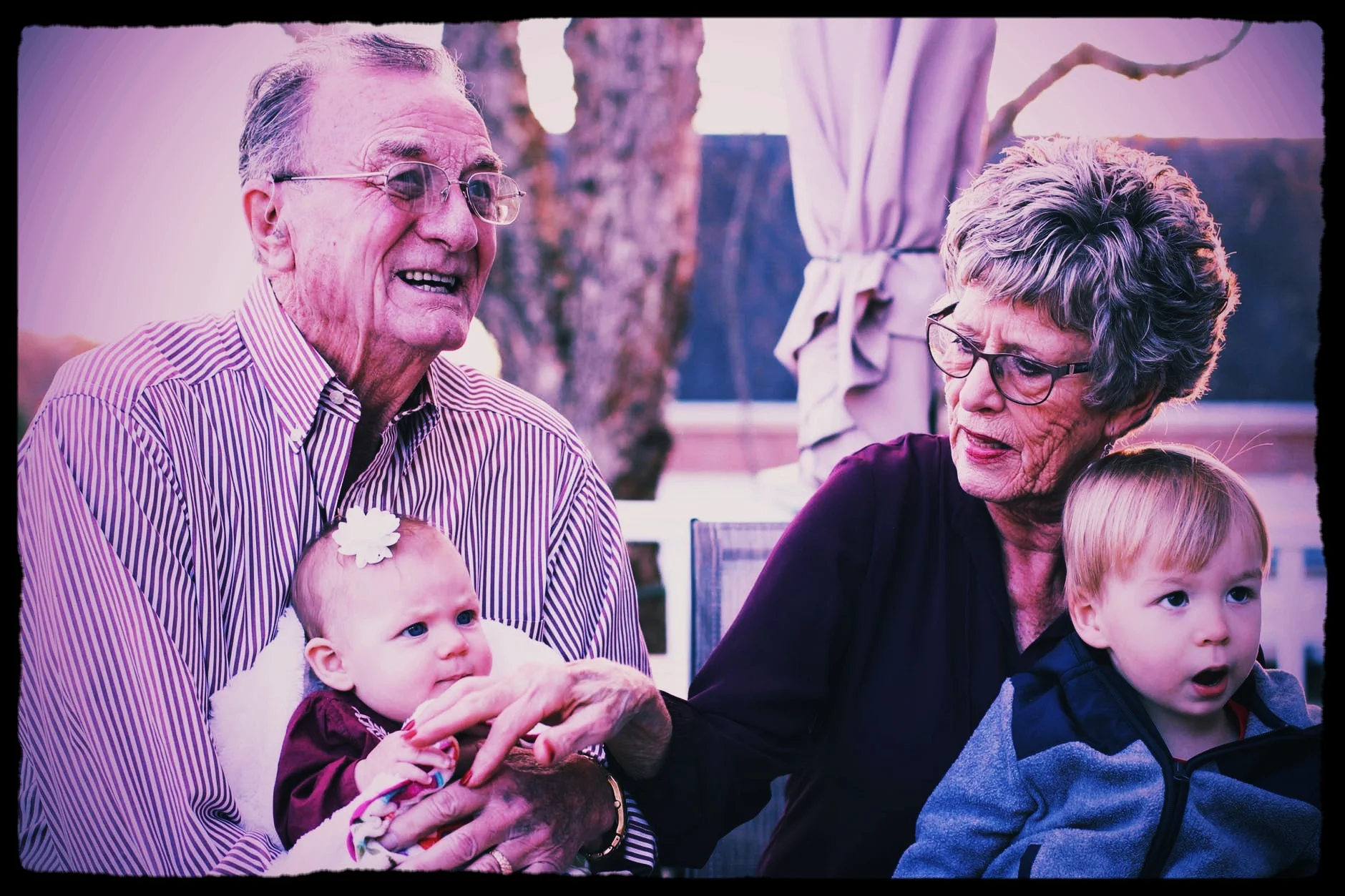For Mother's Day: Madeleine L'Engle on "The Flesh is to Be Honored"
Dear Friends, I come to you today from Kodiak. I write looking out upon my rainy Alaska ocean. Home at last.
It's almost Mother's Day. So I come with a small gift: beautiful words not my own, but words from the beloved Madeleine L'Engle I have caught like seeds on the wind, words planted in The Wonder Years.
There is no more beautiful witness to the mystery of the word made flesh than a baby’s naked body. I remember with sensory clarity sitting with one of my babies on my lap and running my hand over the incredibly pure smoothness of the bare back and thinking that any mother, holding her child thus, must have at least an echo of what it is like to be Mary; that in touching the particular created matter, flesh, of our child, we are touching the Incarnation.
Once, when I was in the hospital, the smooth and beautiful white back of the woman in the bed next to mine, a young woman dying of cancer, was a stabbing and bitter reminder of the ultimate end of all matter.
But not just our human bodies: all matter: the stars in their courses: everything: the end of time.
Meanwhile we are in time, and the flesh is to be honored. At all ages. For me, this summer, this has been made clear in a threefold way: I have fed, bathed, played pat-a-cake with my grandbabies. In the night when I wake up, as I usually do, I always reach out with a foot, a hand, to touch my husband’s body; I go back to sleep with my hand on his warm flesh. And my mother is almost ninety and preparing to move into a different country. I do not understand the mysteries of the flesh, but I know that we must not be afraid to reach out to each other, to hold hands, to touch.
In our bedroom there is a large old rocking chair which was in the attic of Crosswicks when we bought it. It seems to have been made especially for mothers and babies. I have sat in it and nursed my babe in the middle of the night. I have sung innumerable lullabies from it. When Hugh was in Medea, which was sent overseas in 1951 by the State Department, I sat in the rocking chair, carrying his child within me and holding our firstborn in my arms, singing all the old lullabies, but especially “Sweet and Low” because of over the Western sea and bring him again to me.
This summer I sit in the rocking chair and rock and sing with one or other of my granddaughters. I sing the same songs I sang all those years ago. It feels utterly right. Natural. The same.
But it isn’t the same. I may be holding a baby just as I used to hold a baby, but chronology has done many things in the intervening years, to the world, to our country, to my children, to me. I may feel, rocking a small, loving body, no older than I felt rocking that body’s mother. But I am older bodily; my energy span is not as long as it used to be; at night my limbs ache with fatigue; my eyes are even older than the rest of me. It is going to seem very early—it is going to be very early—when the babies wake up: Alan, Josephine, Cynthia, and I take turns getting up and going downstairs with them, giving them breakfast, making the coffee. Is it my turn again so quickly?
Chronology: the word about the measurable passage of time, although its duration varies: How long is a toothache? How long is standing in line at the supermarket? How long is a tramp through the fields with the dogs or dinner with friends, or a sunset, or the birth of a baby?
Chronology, the time which changes things, makes them grow older, wears them out, and manages to dispose of them, chronologically, forever.
Thank God there is kairos, too: again the Greeks were wiser than we are. They had two words for time: chronos and kairos.
Kairos is not measurable. Kairos is ontological. In kairos we are, we are fully in isness, not negatively, as Sartre saw the isness of the oak tree, but fully, wholly, positively. Kairos can sometimes enter, penetrate, break through chronos . . . The saint at prayer, friends around the dinner table, the mother reaching out her arms for her newborn baby, are in kairos. The bush, the burning bush, is in kairos, not any burning bush, but the very particular burning bush before which Moses removed his shoes; the bush I pass on my way to the brook. In kairos that part of us which is not consumed in the burning is wholly awake . . .
I sit in the rocking chair with a baby in my arms, and I am in both kairos and chronos. In chronos I may be nothing more than my social security number; or my passport number.
In kairos I am known by name: Madeleine.
**************************
May you love well and fully this Mother's Day! And May God give us the eyes to see every kairos moment with our babies, our grown babies and our grandbabies.
Gratefully,
Leslie









